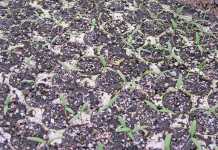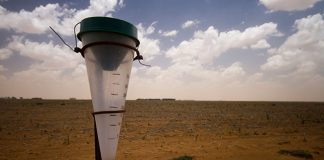I’m alluding to a far more serious problem facing the South African farmer.
Farmers have to run their farms, large or small, like businesses. We have to keep up with new business trends and labour law, and practice sound accounting, with a good understanding of the economy in which we farm.
The primary producers of food in our country are not valued as much as they have been in the past, resulting, inter alia, in the proverbial ‘middleman’ earning a fantastic income.
Farmers’ unions do not really represent the farmer’s interest as much as they once did, because they are run by businesspeople and co-operatives, who are involved to some degree for their own benefit.
But as farmers we know this.
Am I saying that middlemen, co-operatives and agribusinesses in general don’t have a part to play in our economy? Of course not. They bridge the gap between the primary producer and the consumer, and therefore perform a vital part in our economy.
But we need to be aware of the socio-political climate we live in. We need to be aware that we are not valued as much as we once were. In addition to our farming enterprises we need to have a form of income that will support us if our farms cannot. An ‘off-farm’ income.
I have seen many people in my area buy farms, only to sell the farm a couple of years later, hoping to pay back the loan they took from the bank to buy the farm. Living in the country affords one a lifestyle most people dream of, but it does come at a cost.
My grandfather told my father that if he wanted to farm he had to have a professional qualification to supplement his lifestyle. And never to cross subsidise it with the farming income he received. My father passed on the same advice to me.
For farmers who do not have this extra income safety net, let me encourage you. Your hands-on experience as a farmer is far more valuable than you think. You are used to long days and working incredibly hard.
‘Genius is 1% talent, and 99% perspiration,’ they say. I think that applies here. To be successful you have to be willing to educate yourself, and to keep on learning.
Read, spend time networking, finding new clients, marketing yourself, whether you are offering a service or a product. Understand who or what your market is. It’s vitally important to know your product.
Remember we live in an age where one has to be computer literate. We live in a digital age, where the Internet plays a massive role in successful businesses. Be proactive, take yourself out your comfort zone and stretch your abilities. You’ll be surprised at what you can achieve, I promise.
Always be aware of what is going on around you. Do not be complacent. If you feel you aren’t qualified to do any part of your enterprise, then out-source the work. There are businesses that specialise in every area of running an effective business.
Yes, you’ll have to pay a bit more for the service you get, but it will be done by professionals who will get the job done efficiently.
I was taught that the best compost for your crop is your feet on the ground. That’s too true. If you can manage an off-farm income without compromising on that, that’s fantastic.
The bottom line is you have be aware that being a farmer in South Africa today means you need more than one stream of income. Don’t wait for hail to wipe out your entire tobacco crop to realise that you should have taken this advice.
I’ll leave you with a quote: “Whatever you can do, or dream you can, start it!”










